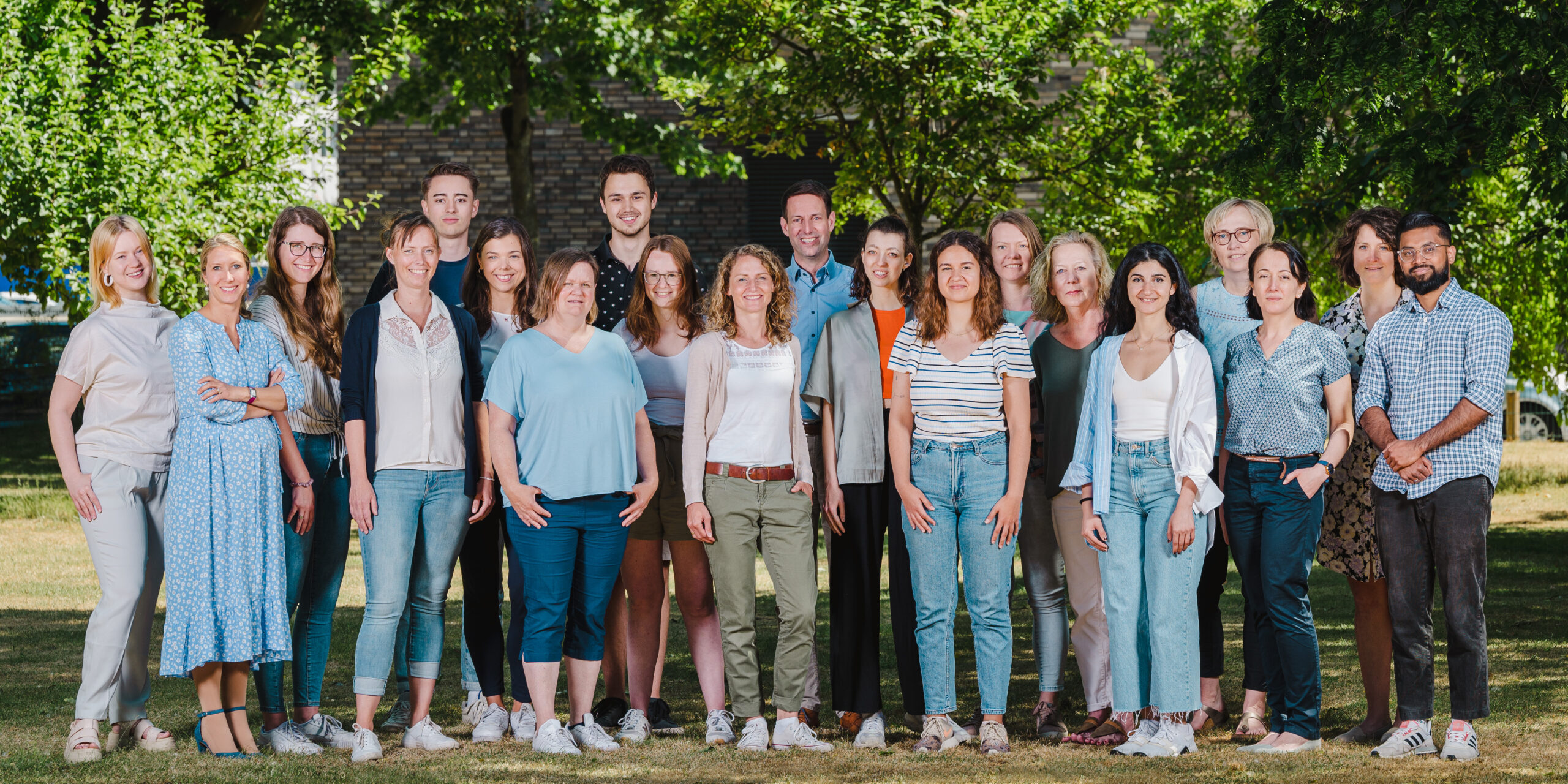Member Page

Member Details
Prof Frank Tüttelmann, MD
Director
Institute of Reproductive Genetics
University of Münster
Vesaliusweg 12-14
48149 Münster
Germany
Administration: Monika Möller
Telephone: +49 (0) 251-83-54888
Email: frank.tuettelmann@ukmuenster.de
Research URL: http://www.reprogenetik.de
Clinical Research Unit: http://www.male-germ-cells.de
Reproduction.MS: https://reproduction.ms/
Male Fertility Gene Atlas: https://mfga.uni-muenster.de/
Team Members
- Corinna Friedrich – Group Leader
- Brigit Stallmeyer – Group Leader
- Avinash Gaikwad – Junior postdoctoral fellow
- Farah Gieh – Junior postdoctoral fellow
- Sophie Koser – Clinician Scientist
- Johanna Steingröver – Clinician Scientist
- Various Other Junior Team Members
Working Group
Improvement of and setting standards for clinical phenotyping, building structures to collect well-phenotyped patient groups, e.g. based on testicular histology.
Member Description
 Prof. Frank Tüttelmann’s reproductive genetics institute aims to identify novel genetic causes for male infertility and deepen the understanding of male germ cells. The multidisciplinary team includes clinician scientists, biomedical researchers, graduate students of several disciplines, and bioinformaticians.
Prof. Frank Tüttelmann’s reproductive genetics institute aims to identify novel genetic causes for male infertility and deepen the understanding of male germ cells. The multidisciplinary team includes clinician scientists, biomedical researchers, graduate students of several disciplines, and bioinformaticians.
The group focusses on the genetic causes of severe spermatogenic failure, mostly severe oligo- and azoospermia, and some specific defects of sperm function such as CatSper deficiency. Since 2017, Frank is the coordinator of the DFG-funded Clinical Research Unit (CRU) 326 – ‘Male Germ Cell’. The main goal of the CRU is to significantly reduce the current number of unexplained male infertility cases by assigning more causal genetic diagnoses and, in parallel, improving phenotyping of these patients. For the clinical characterisation, recruitment of patients, and many research questions, the reproductive genetics group closely collaborates with the local Centre of Reproductive Medicine and Andrology (CeRA).
As a result of the Male Reproductive Genomics (MERGE) study comprising exome/genome data of more than 2,500 infertile men, the group described a number of relevant genes such as TEX11, DMRT1, STAG3, M1AP and SYCP2 and specified associated phenotypes. To facilitate efficient data access and interpretation, the Male Fertility Gene Atlas (MFGA) – a public online platform for OMICs data on male infertility – has been developed by a multidisciplinary team of physicians, biologists and computer scientists.
Publications
Wyrwoll MJ, Köckerling N, Vockel M et al (2022) Genetic Architecture of Azoospermia-Time to Advance the Standard of Care. Eur Urol
Wyrwoll MJ, van Walree SE, Hamer G et al (2021) Bi-allelic variants in DNA mismatch repair proteins MutS Homolog MSH4 and MSH5 cause infertility in both sexes. Hum Reprod
Torres-Fernández LA, Emich J, Port Y, et al (2021) TRIM71 Deficiency Causes Germ Cell Loss During Mouse Embryogenesis and Is Associated With Human Male Infertility. Frontiers in Cell and Developmental Biology, 9.
Krausz C, Riera-Escamilla A, Moreno-Mendoza D et al (2020) Genetic dissection of spermatogenic arrest through exome analysis: clinical implications for the management of azoospermic men. Genet Med
Schilit SLP, Menon S, Friedrich C, et al (2020) SYCP2 Translocation-Mediated Dysregulation and Frameshift Variants Cause Human Male Infertility. Am J Hum Genet 106:41–57.
Wyrwoll MJ, Temel ŞG, Nagirnaja L, et al (2020) Bi-allelic Mutations in M1AP Are a Frequent Cause of Meiotic Arrest and Severely Impaired Spermatogenesis Leading to Male Infertility. Am J Hum Genet 107:342–351.
van der Bijl N, Röpke A, Biswas U, et al (2019) Mutations in the stromal antigen 3 (STAG3) gene cause male infertility due to meiotic arrest. Hum Reprod.
Yatsenko AN, Georgiadis AP, Röpke A, et al (2015) X-Linked TEX11 Mutations, Meiotic Arrest, and Azoospermia in Infertile Men. N Engl J Med 372:2097–2107.
Funding
![]()
Head of Clinical Research Unit (CRU326) ‘Male Germ Cell’ (German Research Foundation, DFG, 2017-2023) including two personal grants ‘Genomics of severe spermatogenic failure’ and ‘Bioinformatic pipelines and integrated analyses’.
